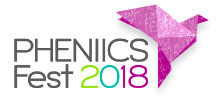Orateur
Description
In the context of High Luminosity phase of LHC (Phase-2), envisaged to start in $\sim$2026, it's planned to increase the beam luminosity up to $7.5\cdot10^{34} cm^{-2}s^{-1}$ and collision energy up to 14 TeV in the center of mass to achieve the high-precision results in the project tasks. These conditions will lead to additional requirements especially on an inner part of the ATLAS detector system. The resulting increase in occupancy levels and integrated radiation doses go beyond the design values for the current tracker. Due to this the replacement of the ATLAS tracker system is foreseen with fully silicon tracker (ITk) based on using of micro-strip and pixel detectors with advanced sensors and readout electronics technologies.\par
This work is dedicated to the characterization of the new n-in-p silicon sensor (active edge and slim edge) designs, which are the promising candidates for the ATLAS pixel detector upgrade to be operated at the HL-LHC, thanks to their radiation hardness, cost-effectiveness, increased active area fraction and low material budget. The results on a test beam characterization of the samples of these designs are presented and discussed in the present work.\par
Another method to characterize the pixel detector modules is a laser test. Using the laser we get the flexible charge injection with well-defined hit position. The laser test bench setup is being developed in the clean room at LAL (Orsay). Current status of the laser test bench setup and the first results are presented in this work.



